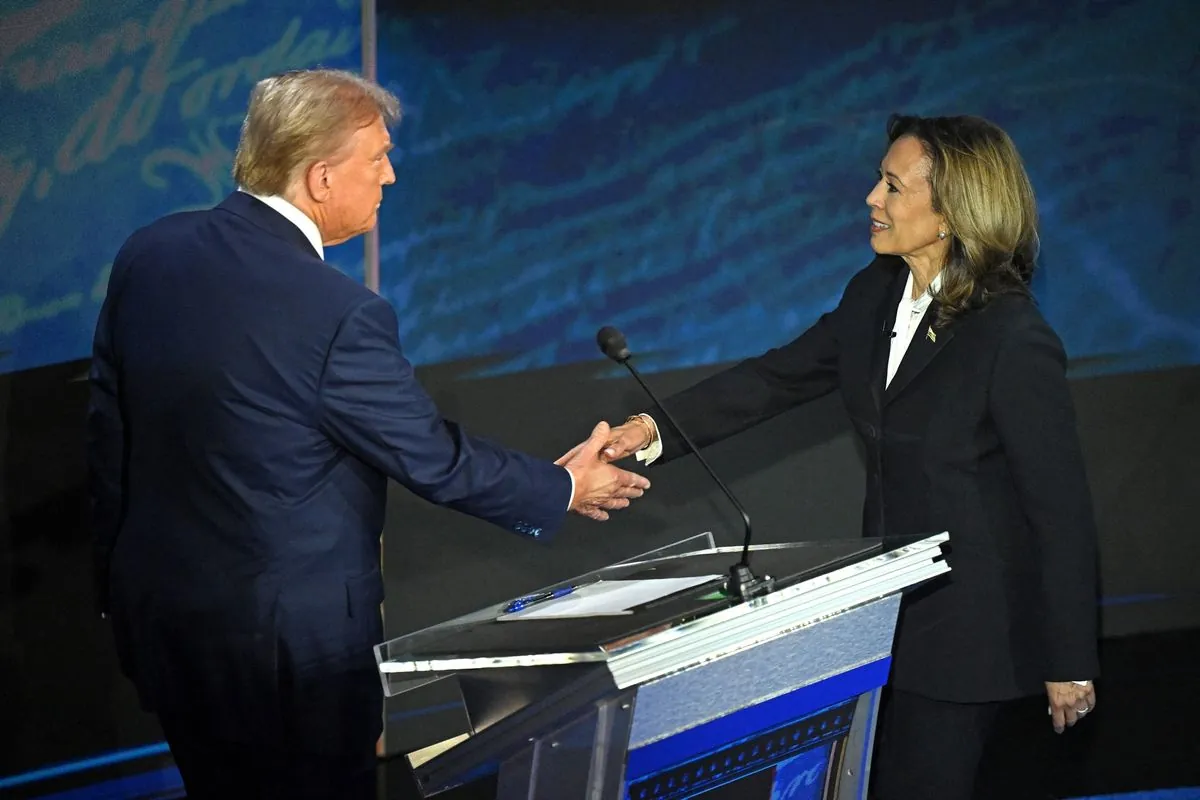Kamala Harris, the Democratic vice presidential candidate, is set to propose a second debate with former president Donald Trump following their scheduled encounter on Tuesday, September 10, 2024. This decision, made prior to the first debate, reflects the Harris campaign's strategy to increase her visibility among undecided voters.
The request for an additional debate comes amidst a complex negotiation process, which has seen significant changes from the traditional debate format. The nonpartisan Commission on Presidential Debates, which has organized presidential debates since 1988, has been sidelined in this election cycle. This shift has led to direct negotiations between the campaigns, resulting in a more fluid and unpredictable debate schedule.
Harris's team is advocating for live microphones during debates, a proposal that Trump's campaign has not agreed to for the September 10 event. This push for transparency echoes the increasing use of fact-checkers during debates in recent years, a practice that has become more prevalent as the impact of debates on voter opinions has been recognized.
The Democratic campaign's strategy extends beyond debates. Since the Democratic National Convention in August 2024, Harris's team has invested $101 million in television, radio, and digital advertising, significantly outspending Trump's $47 million. When including outside groups, the Democratic spending advantage increases to $186 million versus $138 million for Republicans.
"The disparity in campaign spending reflects the different strategies employed by the Harris and Trump campaigns. While Harris focuses on widespread media presence, Trump relies more on direct voter engagement through interviews and rallies."
To counter this financial disadvantage, Trump has opted for a more interview-heavy approach, including a town hall with Fox News and multiple podcast appearances. This strategy harkens back to the introduction of the town hall debate format in 1992, which has since become a staple of presidential campaigns.
The vice-presidential debate between Democratic Tim Walz and Republican JD Vance is scheduled for October 1, 2024, in New York City. This continues the tradition of vice presidential debates, which began in 1976 with Walter Mondale and Bob Dole.
As the campaigns navigate these negotiations, they are mindful of the potential impact on the November 5, 2024 elections. Historical precedent suggests that these debates could significantly influence voter opinions, as seen in the record-breaking viewership of the 2016 debates between Hillary Clinton and Donald Trump.
The evolving nature of these debate negotiations and campaign strategies reflects the changing landscape of American politics, where social media and digital platforms play an increasingly crucial role in shaping public perception and discussion around these high-stakes encounters.
